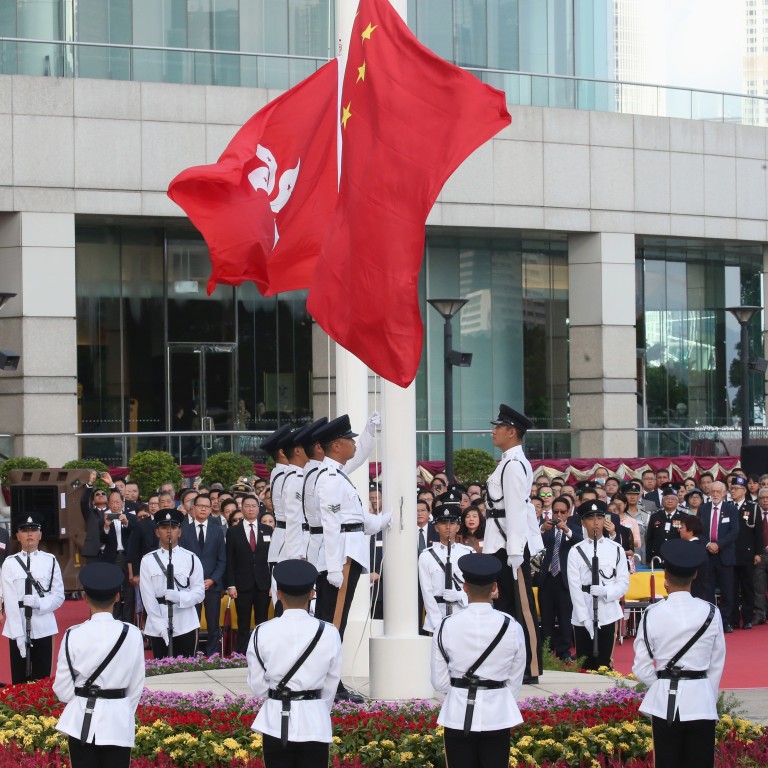
New law will give authorities two years to prosecute anyone in Hong Kong who insults Chinese national anthem – and doing so could land you in jail for three
- Extended time limit necessary says government, as it points to difficulties in investigating cases at sporting events
- Bill to be presented to Legislative Council on January 23, but doubt remains whether it will pass before July recess
Hong Kong’s government on Wednesday unveiled a controversial bill to criminalise abuse of China’s national anthem, which would include giving police up to two years to investigate offenders and also requiring students to sing and study the song at school.
“The main spirit of the National Anthem Bill is respect, a behaviour which is natural, easily understood and not hard to display. As such, the bill will not affect the daily life of the general public,” Secretary for Constitutional and Mainland Affairs Patrick Nip Tak-kuen said.
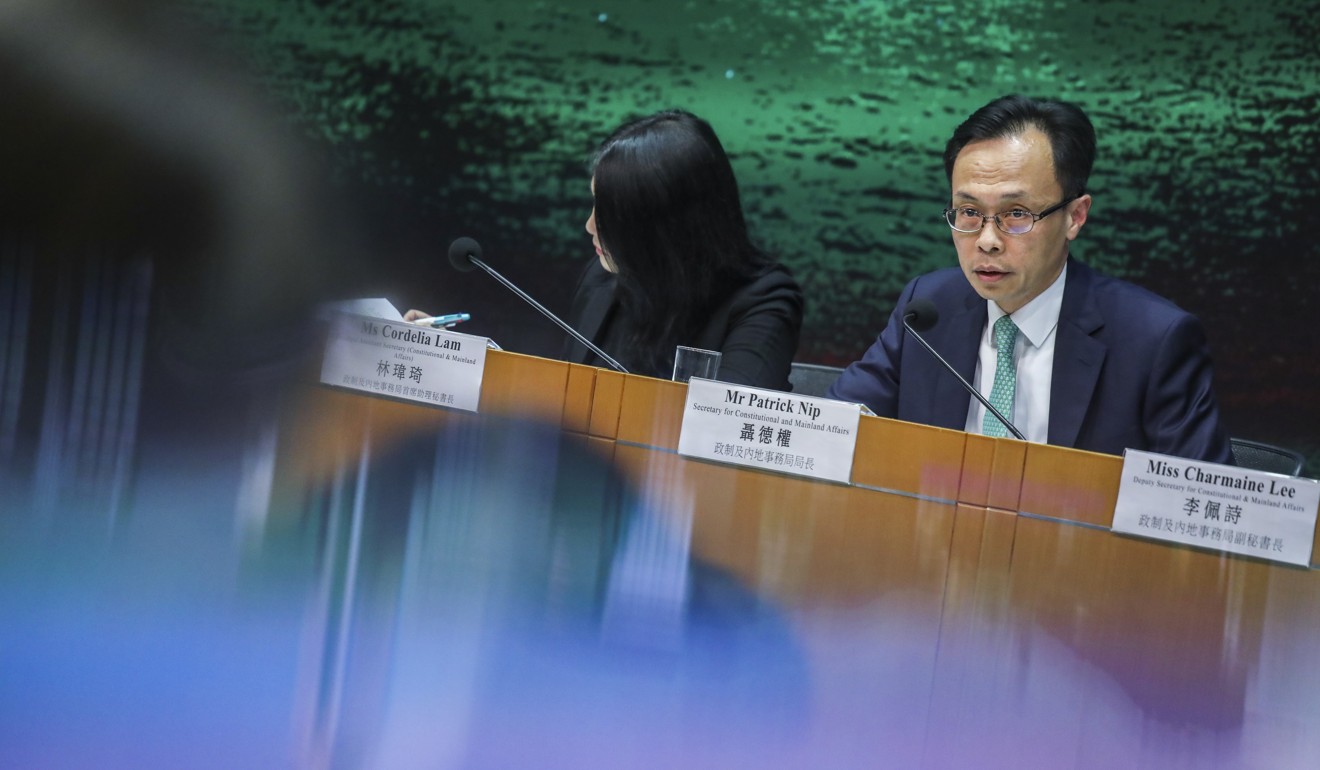
“Nonetheless, for those with an intent to insult the national anthem, and publicly and intentionally perform acts to insult the national anthem, there is a need to introduce punitive provisions in the bill with a view to deterring such behaviours.”
The bill provides for authorities to take up to two years to prosecute offenders, as opposed to the prosecution time limit of six months for other crimes under the Magistrates Ordinance.
The extra time would help authorities tackle contraventions involving “a large crowd of unidentified culprits” such as anti-China soccer fans who have been known to boo the anthem being played at international matches in the city.
Chinese star locked up for singing national anthem in ‘disrespectful’ way
“This legislation is not unique [in having a long prosecution time limit],” Nip said. “We have to consider the effective enforcement of the bill, and it is not too long to allow two years for police investigation.”
Asked whether enforcement would require more surveillance cameras to identify offenders at such gatherings, Nip replied: “We don’t want to see any prosecution. We want people to respect the national anthem and we don’t want to use this law to prosecute them.”
Police would collect evidence according to established procedures and forward cases to the Department of Justice for prosecution, he added.
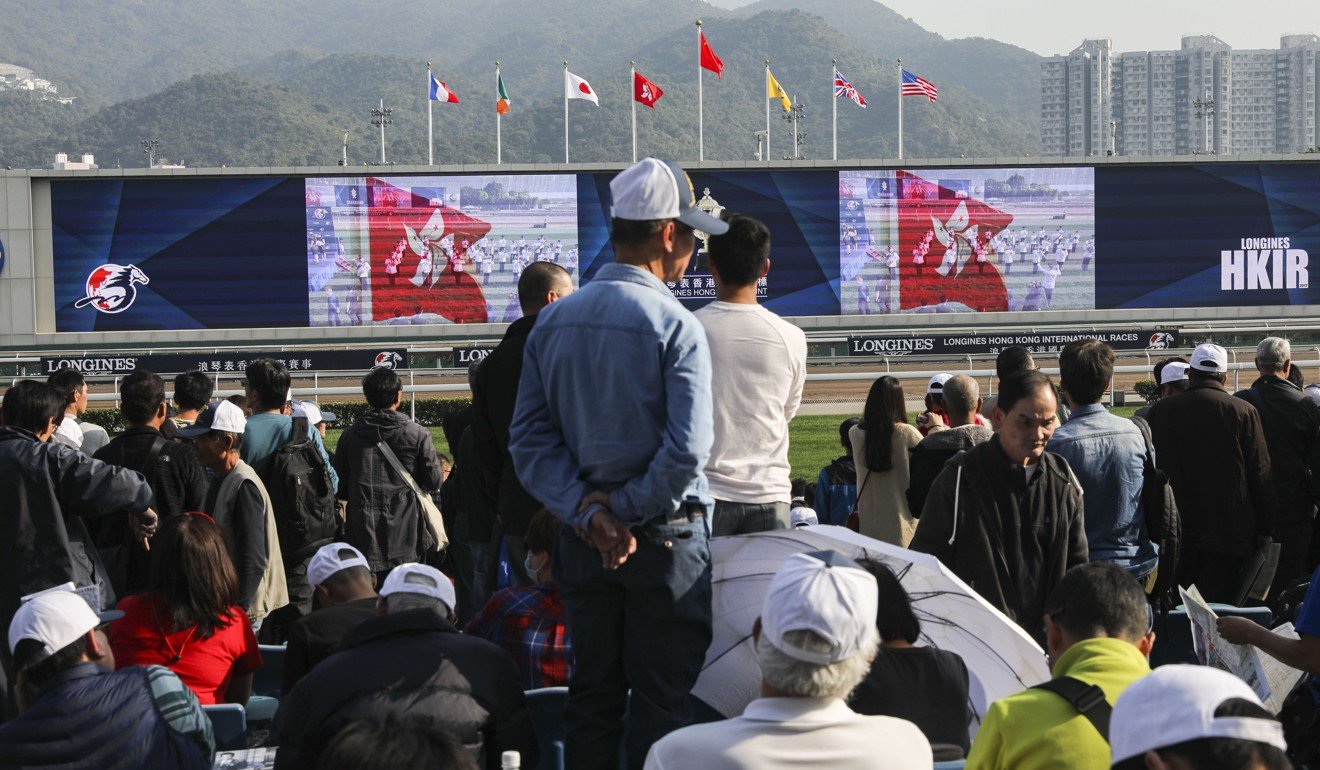
Nip also noted the law would not be used retroactively to punish offenders before Legco’s endorsement, which pro-establishment lawmakers expect by July.
Another significant provision of the bill is for the city’s education minister to ensure the national anthem is taught and used in primary and secondary schooling. This applies to subsidised, international and special schools, but no punishment is specified for those that fail to comply.
“The Education Bureau has held discussions with schools, including international schools … and all have no problem about educating students on the history and spirit of the national anthem,” he said.
The bill will officially require the anthem to be played when lawmakers and principal officials are sworn in.
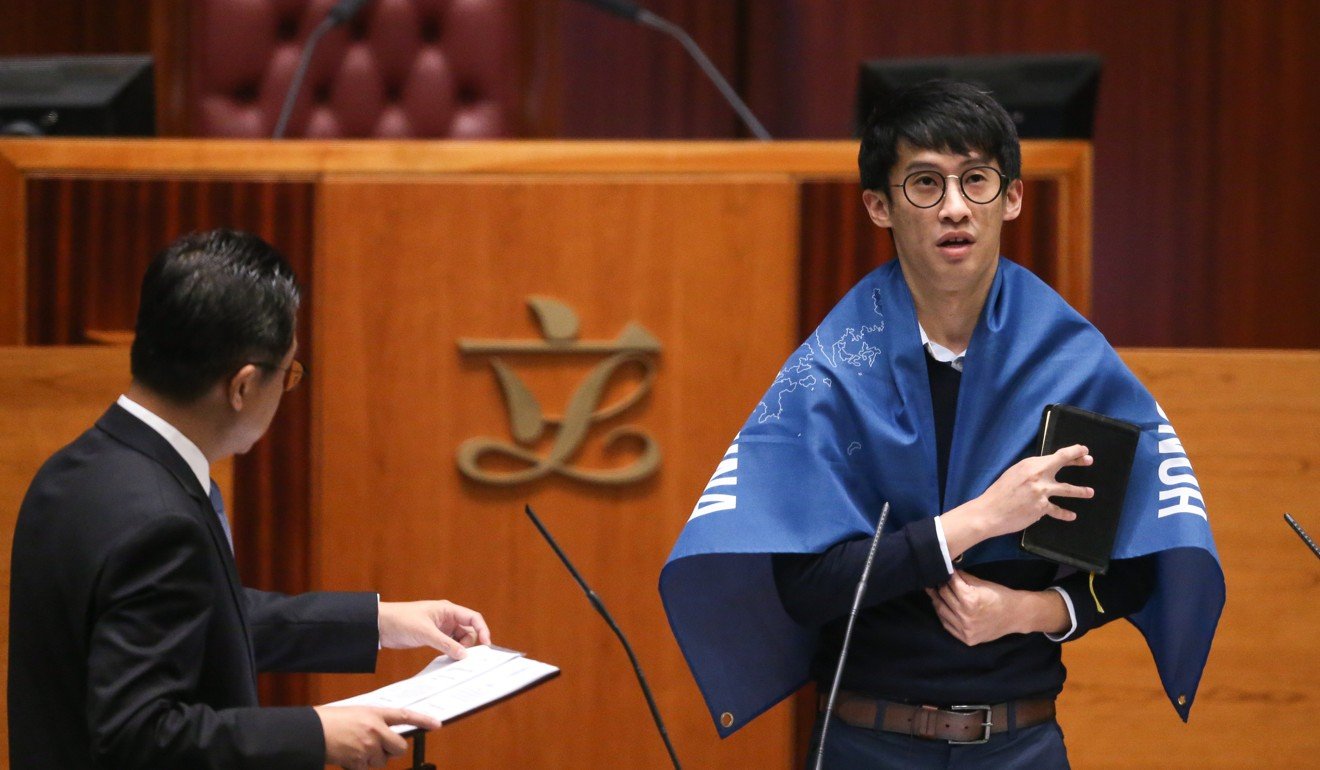
Asked if lawmakers could be disqualified for failing to show up when the anthem was played just ahead of their swearing-in, Nip said it would depend on the rationale they offered for not being present.
“If lawmakers-elect state before the occasion that their absence is an expression of a political view, the person who administers the oaths will consider it in deciding whether the oaths are valid,” Nip said.
Freedom of expression does not come without restriction
The proposed penalties of HK$50,000 in fines and three years in prison are the same for desecrating the national flag and emblem under legislation that became effective upon Hong Kong’s return to Chinese sovereignty in 1997.
“If someone asks if this and that would constitute an offence, I would like to ask if they intend to insult the national anthem,” Nip said, when referred to various types of protests against Beijing by pro-democracy activists. “Freedom of expression does not come without restriction … you may express your political views in other ways, but just don’t do it with the anthem.”
He also addressed concerns raised by the music industry and internet users about running foul of the new law.
Asked if, for example, a Cantonese pop song about the 1998 Fifa World Cup would be banned for incorporating a part of the anthem, Nip said he did not see any problem with including a short tune mimicking March of the Volunteers.
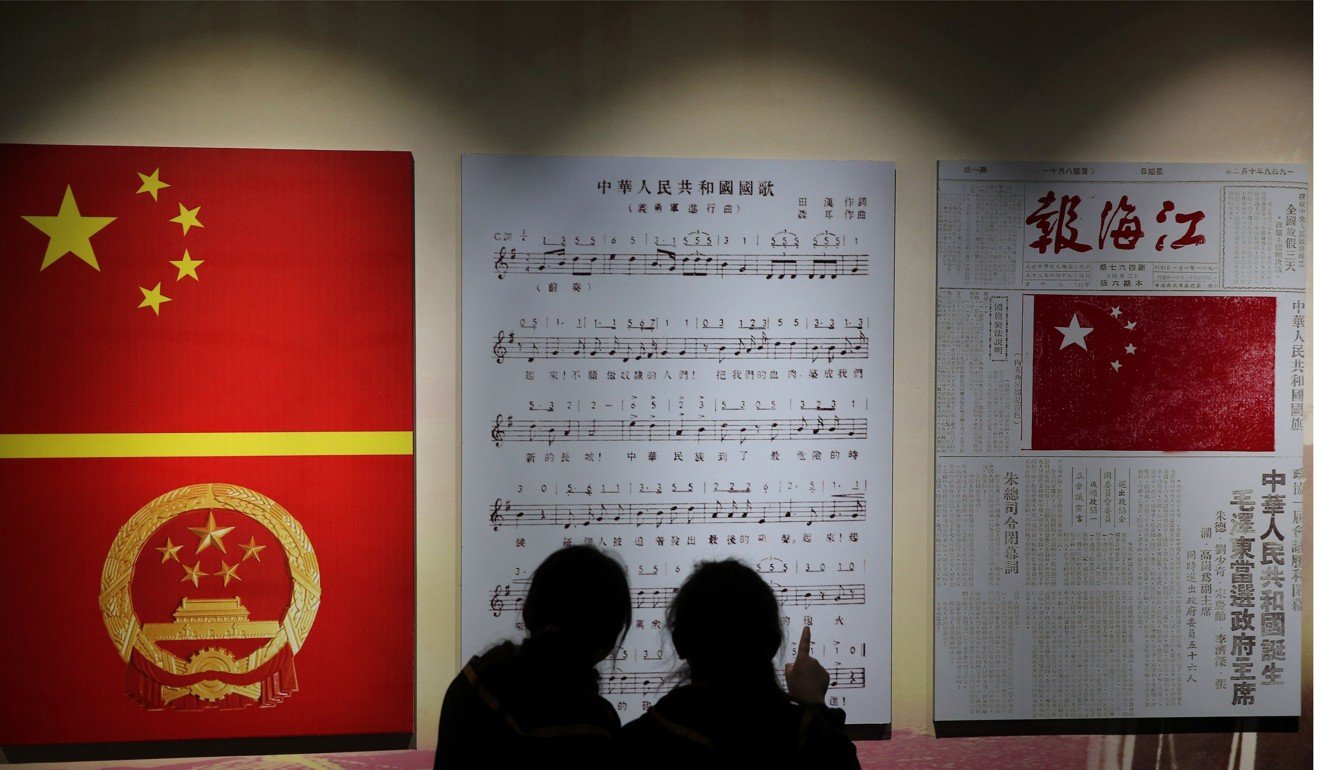
But he said any intention to insult the anthem would be the key factor for prosecution and warned against altering the lyrics or score.
Pro-establishment lawmaker Martin Liao Cheung-kong, who is likely to chair the committee that will scrutinise the bill, said it was a simple matter that could be put to a vote by July.
The largest party in Legco, the Democratic Alliance for the Betterment and Progress of Hong Kong, would back the bill, chairwoman Starry Lee Wai-king said.
How do countries foster respect for their national anthem?
“Only if you intentionally abuse the national anthem will you face punishment,” Lee said, dismissing fears raised by lawmakers from the opposition Civic Party, who vowed to oppose the bill as it was “too vague” on what exactly would constitute abuse of the anthem.
“The scope of the law is very unclear, and the consequences are also very unclear,” legal sector lawmaker Dennis Kwok said.
Democratic Party chairman Wu Chi-wai said the government must allay public concerns over the bill, complaining it was so vague that Hongkongers could unknowingly violate the new law.


